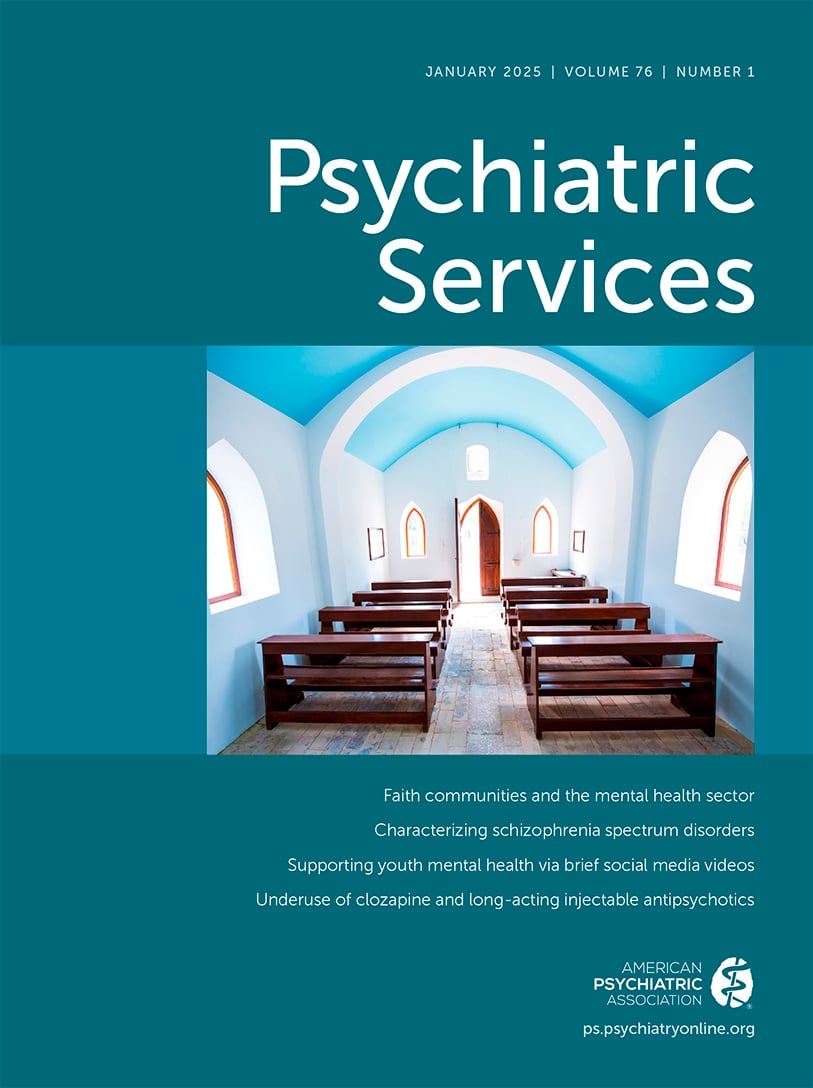Psychiatric Services
- Volume 35
- Number 4
- April 1984
Article
Publication date: 01 April 1984
Pages327–331Hospitals that intend to prosper in the new reimbursement climate will increasingly take a proactive posture by anticipating future needs for information and planning accordingly. Human service organizations must become more accountable for the services ...
https://doi.org/10.1176/ps.35.4.327Publication date: 01 April 1984
Pages341–344Too often mental health care professionals consider bureaucratic constraints rather than patient needs when making clinical, administrative, and public policy decisions. This sort of "top-down" decision-making leads to solutions that emphasize procedures ...
https://doi.org/10.1176/ps.35.4.341Publication date: 01 April 1984
Pages344–349Although clinicians know that the acute symptoms of schizophrenia exacerbate and remit during the course of the illness, few studies detail the process leading to psychotic episodes. As an introduction to the problem of recognizing relapse in ...
https://doi.org/10.1176/ps.35.4.344Publication date: 01 April 1984
Pages350–355The degree to which mental health services and coverage have been integrated into prepaid health plans (PHPs) on a national level is unknown. Using two self-administered mail questionnaires, the authors obtained descriptive data on the organization and ...
https://doi.org/10.1176/ps.35.4.350Publication date: 01 April 1984
Pages356–362The author examines three studies of the major monetary costs and benefits of psychosocial rehabilitation of the mentally ill; he focuses on hospitalization costs, costs of community treatment, and earnings from competitive employment. In the first study, ...
https://doi.org/10.1176/ps.35.4.356Publication date: 01 April 1984
Pages363–368The authors surveyed 19 university-affiliated lithium clinics to examine their clinical practices and standards of care. Most commonly the clinics obtained lithium levels every two months and checked serum creatinine, urinalysis values, and thyroid ...
https://doi.org/10.1176/ps.35.4.363Publication date: 01 April 1984
Pages368–372Bias against individuals with a history of psychiatric hospitalization can block their access to residential care homes and thus impede deinstitutionalization efforts. After surveying home operators in nine residential care programs in five states, the ...
https://doi.org/10.1176/ps.35.4.368Publication date: 01 April 1984
Pages372–376Cultural and linguistic barriers have long been problems in establisbing an effective therapeutic alliance between patients and therapists from different cultural, ethnic, and racial backgrounds. The current emphasis on cultural psychiatry has stimulated ...
https://doi.org/10.1176/ps.35.4.372Publication date: 01 April 1984
Pages377–383Abnormal movements or postures often present a diagnostic and therapeutic challenge to the psychiatrist or neurologist. The authors review pertinent anatomy and physiology of disorders of the extrapyramidal system, suggest aspects of the clinical history ...
https://doi.org/10.1176/ps.35.4.377Publication date: 01 April 1984
Pages385–387We believe that the improvement in drug management of depressive disorder, and the overall improvement of psychopharmacologic practice, can be attributed to the attention the hospital gave to psychopharmacology. Kass and colleagues (10) have also reported ...
https://doi.org/10.1176/ps.35.4.385Publication date: 01 April 1984
Page414The ideas column features brief notes about interesting or unusual programs, novel approaches to therapy, and useful resources in the mental health field. Contributions to ideas are welcomed. items, not exceeding 200 words, should be sent to the Editor, ...
https://doi.org/10.1176/ps.35.4.414Past Issues
View Issues Archive
Vol. 76 | No. 1

Vol. 75 | No. 12

Vol. 75 | No. 11
